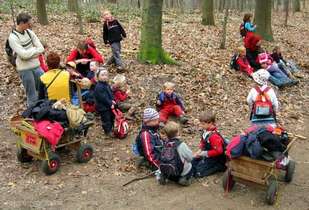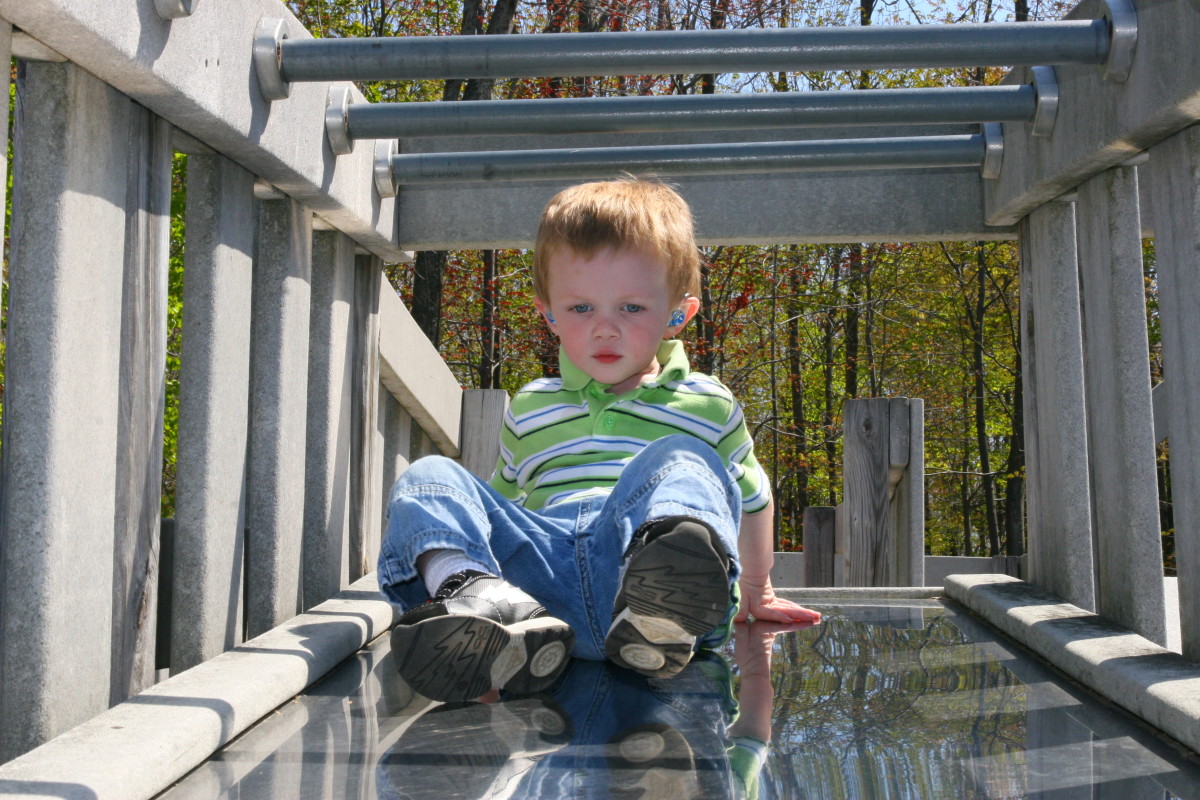Waldkindergartens: Outdoor or Forest Preschools
The German word, waldkinder, literally translates into "forest child." Waldkindergartens, or Forest Kindergartens are prevalent all over Europe and are starting to make a showing in the United States. These growing programs are outdoor preschools. Many of them don't even have buildings for the children. The children spend their days outside, no matter how the weather behaves. The tots are expected to carry their own essential supplies needed to beat the elements.
The children stomp through mud, climb up trees, wade in rivers, interact with living creatures, and swim in ponds. Some Waldkindergartens also have chicken coops and gardens for children to tend to throughout the year.
The Idea
During the 18th Century, German plant enthusiast, Friedrich Wilhelm August Froebel apprenticed himself to a forester. Froebel spent his time tutoring the rich, studying mathematics and botany, and developing an interest in childhood education.
Froebel was convinced that play was extremely important for a child's development. In 1837, he opened an activity center for children. Even though the little ones spent some time inside, painting and playing with blocks, Froebel believed that they should be spending as much time as him playing, singing, and running around outside. His activity center was named the Care, Play, and Activity Center. Thinking that the name was a mouthful to say, Froebel changed it to Kindergarten because the children were always playing out in his garden.
The Danish picked up on the idea and Waldkindergartens began their spread around Europe in the 1950s.
Froebel's idea has grown into reality and Waldkindergartens or outdoor kindergartens are all over the world today.

The Philosophy
The beliefs behind the benefits of Waldkindergartens are plenty. People who run the preschools or send their children to forest kindergartens believe that it is a good experience because they:
- promote creativity,
- hone thinking skills,
- teach compassion for the planet,
- teach conservation: recycling and reusing, and
- provide a natural environment for exploring, discovering, and learning.
Some parents are attracted to forest kindergarten programs because they are not spending the day playing with manufactured toys. The children are outside interacting with nature.
There is also a belief that children benefit physically from the experience as well because they tend to be more agile and balanced. They are walking on the woodland floors and climbing around all day.
Waldkindergarten providers have been criticized over the years for disregarding the weather. Some feel it is not safe for children between the ages of 3 and 6 to be out in the elements, especially during the winter when there could be feet of snow on the ground. Based on the Waldkindergarten philosophy, however, the children stay outdoors and continue to play and explore, learn and reflect.

The Activities
Most Waldkindergartens provide the same activities for children, which may include:
- drawing scenes
- looking for patterns
- counting
- building shelters or structures with natural materials
- climbing trees or exploring the forest
- playing hide and seat
- reflecting during alone time
- resting
- role playing or playing imaginative games
Some Waldkindergartens are actually located in meadows rather than forests, allowing children to experience slightly different activities such as swimming in ponds.
During the day, the adults at the Waldkindergartens do not necessarily develop structured activities for the children to participate in with restricted times. They are not necessarily schedule-bound. Children spend a vast majority of their time free-exploring and playing. The activities and structures, or lack of, align with both the Montessori and Waldorf philosophies.
The Teachers
The adults who run Waldkindergartens are not required to get any extra training or schooling beyond their preschool licensing requirements. Today, most preschool teachers are already trained in first aid.
It is best if the teachers believe in the philosophy behind forest kindergartens. It would also help if the teachers enjoyed being outside, interacting with nature and the children.






